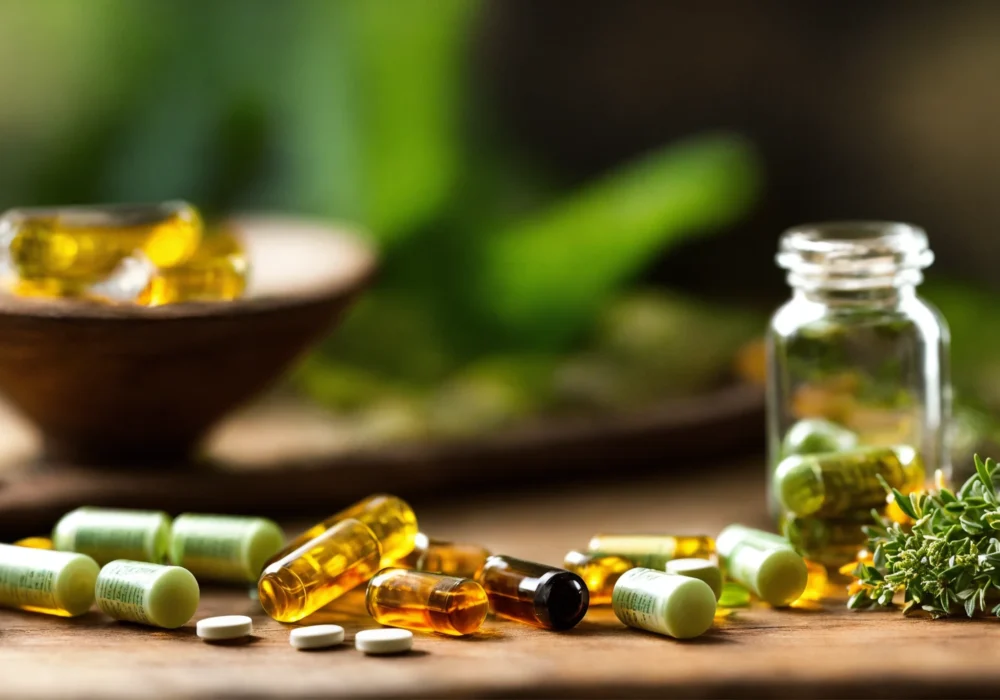Can herbs interact with medications?

Can herbs interact with medications? Yes, herbs can interact with medications, and it’s crucial to be aware of potential interactions to ensure safe and effective use of both herbal remedies and pharmaceutical drugs. Interactions can occur when the active compounds in herbs affect the absorption, metabolism, or elimination of medications, potentially altering their efficacy or causing side effects. Here are some important considerations:
- Increased or Decreased Drug Levels:
- Some herbs may affect the absorption or metabolism of medications, leading to either increased or decreased levels of the drug in the bloodstream.
- Liver Enzyme Interactions:
- The liver plays a key role in metabolizing both herbs and medications. Certain herbs may influence liver enzymes responsible for drug metabolism, affecting the breakdown of medications.
- Blood-Thinning Effects:
- Some herbs, such as ginkgo biloba or garlic, have blood-thinning properties. When taken with anticoagulant or antiplatelet medications, this can increase the risk of bleeding.
- Blood Pressure Effects:
- Herbs like hawthorn or licorice may influence blood pressure. Combining them with antihypertensive medications could lead to excessively low blood pressure.
- Gastrointestinal Effects:
- Certain herbs may affect the absorption of medications in the gastrointestinal tract. For instance, fiber-rich herbs may slow down the absorption of some drugs.
- Central Nervous System Effects:
- Sedative herbs like valerian or kava may enhance the sedative effects of medications that act on the central nervous system.
- Electrolyte Imbalance:
- Herbs with diuretic properties, such as dandelion or parsley, can influence fluid balance and electrolytes. This may be relevant when taken alongside certain medications.
- Hormonal Effects:
- Herbs like soy or black cohosh may have estrogenic effects. When combined with hormonal medications, they could affect hormone levels.
To minimize the risk of herb-drug interactions:
- Inform Your Healthcare Provider:
- Always inform your healthcare provider about any herbs, supplements, or natural remedies you are taking. This information is crucial for a comprehensive understanding of your health regimen.
- Professional Guidance:
- Seek guidance from a qualified healthcare professional, such as a doctor, pharmacist, or herbalist, who can assess potential interactions based on your specific health conditions and medications.
- Monitor for Side Effects:
- Be vigilant for any unusual symptoms or side effects when combining herbs with medications. If you experience adverse effects, consult with your healthcare provider promptly.
- Choose Reputable Sources:
- Use high-quality, standardized herbal products, and obtain herbs from reputable sources. Standardized extracts with consistent potency can help manage dosages more effectively.
It’s important to note that herbs are not universally contraindicated with medications, and many people use them safely alongside conventional treatments. However, individual responses can vary, and professional guidance is essential to ensure safe and effective integration.
Blog: Tees Herbs Blog
Sponsors: Mixtapepsds, Conspiracyortruth
